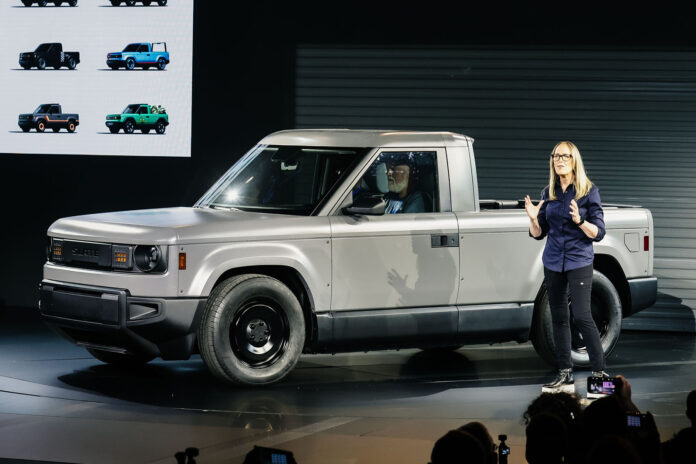The design boss of Slate Auto, the American start-up backed by Amazon that plans to launch a bare-bones, £20,000 electric pick-up truck in 2027, believes “people deserve to have a car that they can afford” and the concepts of desirability and affordability should be “inseparable”.
Speaking to the Autocar Meets podcast from the Car Design Event in Munich, Tisha Johnson said the “clear, overwhelming response” to the Slate Truck’s unveiling last month has been “oustanding and somehow surprising” but ultimately reflective of the public’s desire for more affordable yet still attractive cars.
Prior to joining Slate, Johnson spent several years at Volvo’s North American design studio, primarily focused on interior development, before taking a break from the automotive industry with stints at appliance manufacturer Whirlpool and furniture maker Herman Miller.
Asked if those experiences have informed the utilitarian, functional design of the Truck, and whether it could be considered an appliance rather than a car, Johnson said: “I haven’t contemplated it as an appliance. When we first started talking about what we were going to do, there were two objectives that were inseparable. The first thing was to provide affordable transportation, a car that people could afford, and the second was to make it desirable.
“And that is exactly why I knew I was in the right place, because [those things] should be inseparable. People deserve to have a car that they can afford.”
Johnson said that the Slate project appealed specifically to her desire to have a “meaningful impact for society and on people’s lives” and gave her an opportunity to fulfil a prevailing career ambition: “It was concerning to me that I hadn’t delivered affordable mobility, an affordable car, to people.”
Indeed, the Slate Truck is tipped to be one of the most affordable pick-ups – electric or otherwise – on sale in the US, with a targeted start price of just $27,000 (£20k) before incentives.
That puts it roughly on a par with the entry-level, petrol-engined Ford Maverick and makes it roughly half the price of the Ford F-150 Lightning – currently America’s cheapest electric truck.
Crucial to the Slate’s low list price – and, Johnson argues, its mass appeal – is a bare-bones cabin that eschews much of the advanced technology and equipment common to new cars, featuring manual seats, no stereo as standard and a device mount in place of a touchscreen, for example.
